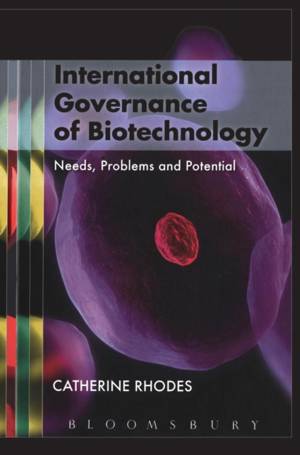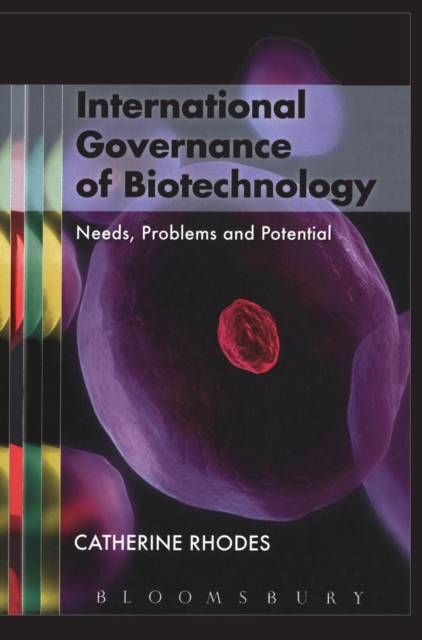
Bedankt voor het vertrouwen het afgelopen jaar! Om jou te bedanken bieden we GRATIS verzending (in België) aan op alles gedurende de hele maand januari.
- Afhalen na 1 uur in een winkel met voorraad
- In januari gratis thuislevering in België
- Ruim aanbod met 7 miljoen producten
Bedankt voor het vertrouwen het afgelopen jaar! Om jou te bedanken bieden we GRATIS verzending (in België) aan op alles gedurende de hele maand januari.
- Afhalen na 1 uur in een winkel met voorraad
- In januari gratis thuislevering in België
- Ruim aanbod met 7 miljoen producten
Zoeken
€ 228,95
+ 457 punten
Omschrijving
The significant media coverage recently given to issues such as the international impacts of biofuel production policies, advances in synthetic biology, and the ethical implications of research involving embryonic stem cells, is indicative of the high-level of interest - among policy-makers, academics and the public - in the biotechnology revolution, its applications, impacts and control. There is also significant interest in international regulatory processes as a form of governance, and international regulation is a vital part of efforts to manage the impacts of the biotechnology revolution, since many of these are global in their nature.
The book establishes the need for international regulation of biotechnology, identifying the roles it needs to play, and the issues it needs to cover. Having outlined the importance of coherence to the effective functioning of international regulatory sets, a model of coherent international regulation is established, against which the biotechnology regulations can be assessed. This book approaches the subject from an international relations perspective but also draws from, and will contribute to, literature in the fields of international law, global governance, technological governance, and science-society relations.
The book establishes the need for international regulation of biotechnology, identifying the roles it needs to play, and the issues it needs to cover. Having outlined the importance of coherence to the effective functioning of international regulatory sets, a model of coherent international regulation is established, against which the biotechnology regulations can be assessed. This book approaches the subject from an international relations perspective but also draws from, and will contribute to, literature in the fields of international law, global governance, technological governance, and science-society relations.
Specificaties
Betrokkenen
- Auteur(s):
- Uitgeverij:
Inhoud
- Aantal bladzijden:
- 256
- Taal:
- Engels
- Reeks:
Eigenschappen
- Productcode (EAN):
- 9781849660655
- Verschijningsdatum:
- 15/02/2012
- Uitvoering:
- Hardcover
- Formaat:
- Genaaid
- Afmetingen:
- 157 mm x 236 mm
- Gewicht:
- 453 g

Alleen bij Standaard Boekhandel
+ 457 punten op je klantenkaart van Standaard Boekhandel
Beoordelingen
We publiceren alleen reviews die voldoen aan de voorwaarden voor reviews. Bekijk onze voorwaarden voor reviews.









